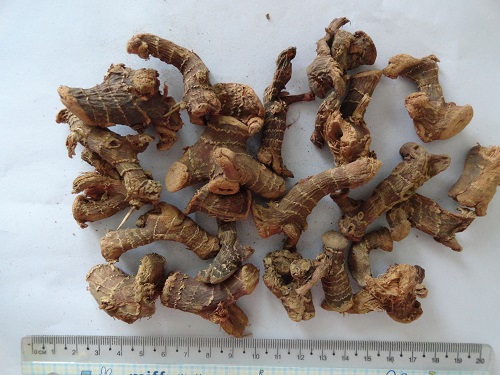Galangal Root

Latin Name:Alpinia officinarum
Galangal is a rhizome of plants in the ginger family
Zingiberaceae, with culinary and medicinal uses originating in Indonesia. The
rhizomes are used in various Asian cuisines (for example in Thai and Lao tom
yum and tom kha gai soups, Vietnamese Huế cuisine (tré) and
throughout Indonesian cuisine, for example, in soto). Galangal is related to
and resembles ginger. While ginger tastes a little like galangal, most cooks
who use both rhizomes would never substitute one for the other and expect the
same flavor profile.In its raw form, galangals have a dissimilar taste from
common ginger. They are available as a whole rhizome, cut or powdered. The
whole fresh rhizome is very hard, and slicing it requires a sharp knife. A
mixture of galangal and lime juice is used as a tonic in parts of Southeast
Asia. In the Indonesian language, the greater galangal and lesser galangal are
both called lengkuas or laos, while Kaempferia galanga is known as kencur. It
is also known as galanggal, and somewhat confusingly galingale, which is also
the name for several plants of the unrelated Cyperus genus of sedges (also with
aromatic rhizomes). In Thai language, greater galangal is called "ข่า" (kha) or
"ข่าใหญ่" (kha yai), while lesser galangal
is called "ข่าตาแดง" (kha ta daeng). In Vietnamese,
greater galangal is called riềng nếp and lesser
galangal is called riềng thuốc.